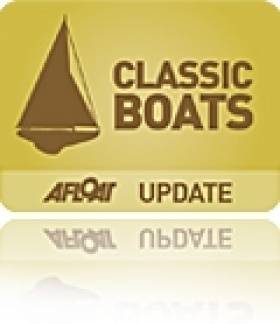Displaying items by tag: Noam Éanna
#NaomÉanna- An online petition by campaigners has been set-up to save Naom Éanna, the former CIE Galway-Aran Islands ferry which faces scrapping by Waterways Ireland, as the date for her reprieve expires on 31 March, writes Jehan Ashmore.
Last week Sinead Eirean granted a stay of execution to scrap the Liffey Dockyard built vessel dating from 1958 and despite Minister Deenihan of the Department of Arts & Heritage and the Gaeltacht, who had rejected an appeal to save the 438 tonnes veteran vessel.
Naom Éanna is the oldest surviving example of an Irish ship built using riveted-hull construction techniques and as such she holds a unique position in the nations shipbuilding heritage. In addition she served as a vital passenger and cargo link for the Aran Islanders and the mainland and a cultural identity that campaigners also wish to recognise.
Among those campaigning have been the Naomh Éanna Trust, the Inland Waterways Association of Ireland and the Irish Ship & Barge Fabrication Company. Sam Field Corbett of the company has called for time so to implement a business plan in attracting private investment so to facilitate her restoration.
For more than a week, Naom Éanna has been berthed at a graving dry-dock owned by NAMA at the Grand Canal Dock Basin. The 137ft veteran vessel had been berthed at Charlotte Quay, her long-standing location in the basin for more than a quarter century.
Following withdrawal from Galway Bay service in 1988 she sailed to Dublin Port. The following year she was taken over by the Irish Nautical Trust and taken to her Ringsend home where marine-related businesses were based on board.
























































